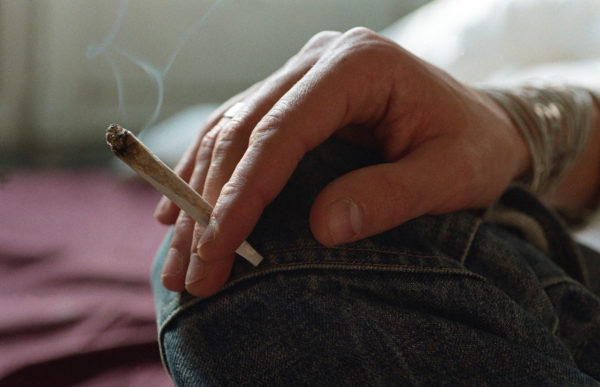Gov. Andrew Cuomo has signed legislation to decriminalize recreational pot possession in New York state, stopping just short of his goal to legalize the drug completely.
The bill, signed into law Monday, would reduce penalties for possessing small amounts of marijuana, making the offense punishable with fines rather than criminal charges or jail time, according to Reuters. The bill would also allow for those previously convicted of possessing the drug to have their records cleared.

New York has softened penalties for pot possession, and has created a process for the expungement of some prior weed offenses. (Photo: Getty Images)
“Communities of color have been disproportionately impacted by laws governing marijuana for far too long, and today we are ending this injustice,” Cuomo said in a statement.
He added: “By providing individuals who have suffered the consequences of an unfair marijuana conviction with a path to have their records expunged, and by reducing draconian penalties, we [are] taking a critical step forward in addressing a broken and discriminatory criminal justice process.”
Under the new law, the maximum penalty for possessing less than an ounce of weed is $50, while those caught with up to two ounces face a maximum penalty of $200.
The legislation is set to take effect in 30 days, and is expected wipe clean the records of an estimated 24,400 people, according to New York’s Division of Criminal Justice Services. The agency said the bill will also prompt the sealing of more than 200,000 convictions for low-level pot offenses.
The move comes a little over a month after efforts to legalize the sale of recreational marijuana was snuffed out in the New York state legislature. Manhattan state Sen. Liz Krueger, who championed the Marijuana Regulation and Taxation Act, accepted defeat after questions over how tax revenue from the drug would be spent, among other issues, stymied the bill’s success.
“We came very close to crossing the finish line,” Krueger said. “But we ran out of time.”
The legalization advocate vowed to continue pushing for “tax-and-regulate adult-use programs,” specifically ones focused on restorative justice “in the communities most harmed by decades of failed prohibition policies.”
According to FBI data, more than 360,000 New Yorkers were arrested for pot possession between 2008 and 2018. Last year alone, nearly 13,500 arrests were made under the criminal statute.
A recent analysis of data from the state’s Division of Criminal Justice Services found that while pot possession arrests in the state have declined since peaking in 2011, African-Americans and Latinos are still arrested at higher rates than their white counterparts.
In December, Gov. Cuomo announced marijuana legalization as one of his top legislation priorities for 2019, arguing that the revenue generated by taxation of the drug would help address a number of the city’s issues.
Legalization advocates have cheered the move to decriminalize, however, critics say the legislation falls short and fails to address the consequences tied to keeping marijuana illegal.
“Police have historically found a way to work around the decriminalization of marijuana,” Erin George of Citizen Action of New York told The Associated Press.
Emma Goodman with the Legal Aid Society of New York agreed, telling WRVO that she doesn’t think the bill will make much of a difference
“I do think that people who have been harmed by the era of broken windows policing will be somewhat affected by it in a positive way, because there are people who have a bunch of low-level marijuana convictions that they won’t have any more,” she added.
Marijuana remains illegal under federal law.


